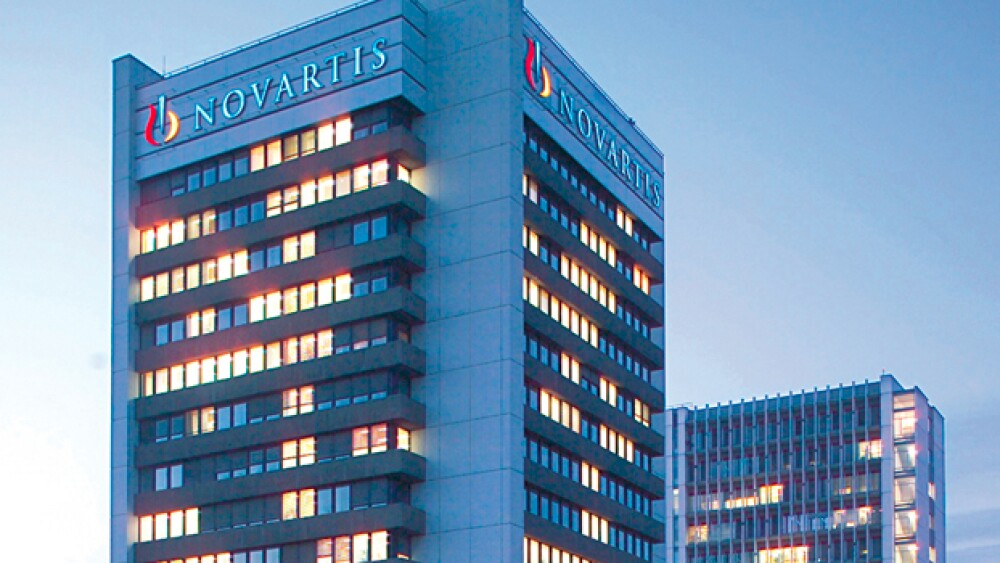The FDA based its decision on data from the COMBI-AD Phase III trial.
The U.S. Food and Drug Administration (FDA) granted Novartis’ Tafinlar (dabrafenib) in combination with Mekinist (trametinib) Breakthrough Therapy Designation (BTD) as an adjuvant treatment for stage III melanoma with a BRAF V600 mutation after complete resection.
If approved, it will be the first adjuvant treatment specifically for melanoma patients with a BRAF V600 mutations. The FDA based its decision on data from the COMBI-AD Phase III trial. The trial looked at 870 patients with stage III BRAF V600E/K mutation-positive melanoma after complete surgical resection treatment treated with Tafinlar and Mekinist. Patients received the combination or placebos. After a median follow-up at 2.8 years, the primary endpoint of relapse-free survival (RFS) was observed. The combination treatment cut the risk of disease recurrence or death by 53 percent compared to placebo.
Novartis recently presented the data at the European Society for Medical Oncology Congress (ESMO) and published it in the The New England Journal of Medicine.
“There is a need for more effective treatment options for stage III melanoma patients at a high risk of recurrence following surgical resection,” said Samit Hirawat, Novartis Oncology’s executive vice president and head, Global Drug Development, in a statement. “We thank the FDA for recognizing the scientific advancement Tafinlar and Mekinist may provide in this adjuvant setting.”
The combination of Tafinlar and Mekinist has been approved for the treatment of metastatic non-small cell lung cancer (NSCLC) with a BRAF V600E mutation in the U.S., and in the European Union for advanced NSCLC with a BRAF V600 mutation.
The drugs target different kinases within the serine/threonine kinase family, BRAF and MEK1/2, respectively, which are in the RAS/RAF/MEK/ERK pathway. These are associated with NSCLC and melanoma, as well as other cancers. The combo therapy appears to work better than each drug as a monotherapy. The combo is being evaluated in a variety of other cancers. Both drugs are approved for use alone in unresectable or metastatic melanoma with a BRAF V600 mutation in more than 60 countries, including the U.S. and EU.
Novartis is in a race against its Swiss rival Roche to get its Taflinlar and Mekinist combo approved before Roche gets its Cotellic-Zelboraf combo in a cocktail with PD-L1 Tecentriq drug as a first-line treatment for BRAF V600 melanoma approved. Roche hopes to file that triple-combo, which is currently in a Phase III trial, sometime in 2019.
Novartis acquired its combo in 2015 as part of its three-way deal with GlaxoSmithKline. In June, Novartis received the go-ahead from the FDA for the combo in metastatic NSCLC with the BRAF V600E mutation. In that Phase II trial, more than 60 percent of treatment-naïve and previously treated patients responded to the combination treatment.
When Novartis presented its data at ESMO last month, study co-author Axel Hauschild said in a statement, “There is no standard of care for the adjuvant treatment of stage III melanoma. Interferon is approved for this situation but improves relative relapse-free survival by just 20 percent compared to placebo.”





